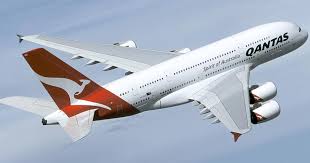The fighting between Israel and Hamas might send oil prices into “uncharted waters,” according to a World Bank assessment released on Monday. This could lead to a global surge in food costs.
If the violence doesn’t worsen, the implications on oil prices should be minimal, according to the World Bank’s Commodity Markets Outlook, but things “would darken quickly if the conflict were to escalate.”
There are now concerns about a wider Mideast confrontation as a result of the militant group Hamas’ strike on Israel and the Israeli military’s response.
Furthermore, there is a chance that things will get worse. Over the weekend, Israeli Prime Minister Benjamin Netanyahu said that the war had entered a “second stage” as Israeli tanks and troops advanced into Gaza. Officials from Hamas have demanded greater support from allies in the region particularly Hezbollah in Lebanon, which is funded by Iran.
Three scenarios for the world’s oil supply in the event of a slight, medium, or massive disruption are simulated in the World Bank paper.
In a “small disruption” scenario, the effects should be minimal because the World Bank projects that oil prices will average $81 per barrel next year, down from the present levels of almost $90 per barrel.
However, in a “medium disruption” (similar to the difficulties encountered during the Iraq War), the approximately 100 million barrels of oil produced daily globally would drop by 3 million to 5 million barrels per day, potentially leading to a 35% increase in oil prices.
According to the research, under a “large disruption” scenario that is akin to the 1973 Arab oil embargo, the world’s oil supply would decrease by 6 million to 8 million barrels per day, and prices might increase by 56% to 75%, or $140 to $157 per barrel.
The World Bank’s chief economist, Indermit Gill, stated that the disruptions caused by Russia’s invasion of Ukraine “continue to this day” in the global economy.
“The world economy would experience a dual energy shock for the first time in decades if the conflict escalated—not just from the war in Ukraine but also from the Middle East,” Gill stated.
The deputy chief economist of the World Bank, Ayhan Kose, predicted that rising oil prices will eventually drive up food prices.
As a result of Russia’s invasion of Ukraine, Kose stated, “If a severe oil price shock materializes, it would push up food price inflation that has already been elevated in many developing countries.” “Food insecurity would worsen globally as well as in the region if the most recent conflict escalates.”
Since the beginning of the conflict, oil prices have increased by roughly 6% overall. Furthermore, the World Bank reports that gold has surged by almost 8%. Gold is a commodity that typically rises during times of conflict.
Since the United States is producing more oil than ever before, several analysts doubt that the country would face severe oil shortages.
Treasury Secretary Janet Yellen stated at a Bloomberg event on Thursday that the Biden administration was closely observing the economic fallout from Israel’s assault against Hamas.
“There may be more significant repercussions if the war continues,” she added, adding that “so far, we have not seen much that has global consequences.”
“No one can convince me that oil and gas are safe and secure energy choices for countries or consumers,” stated Fatih Birol, the executive director of the International Energy Agency, in light of Russia’s invasion and the most recent fighting in Gaza between Israel and Hamas.


















